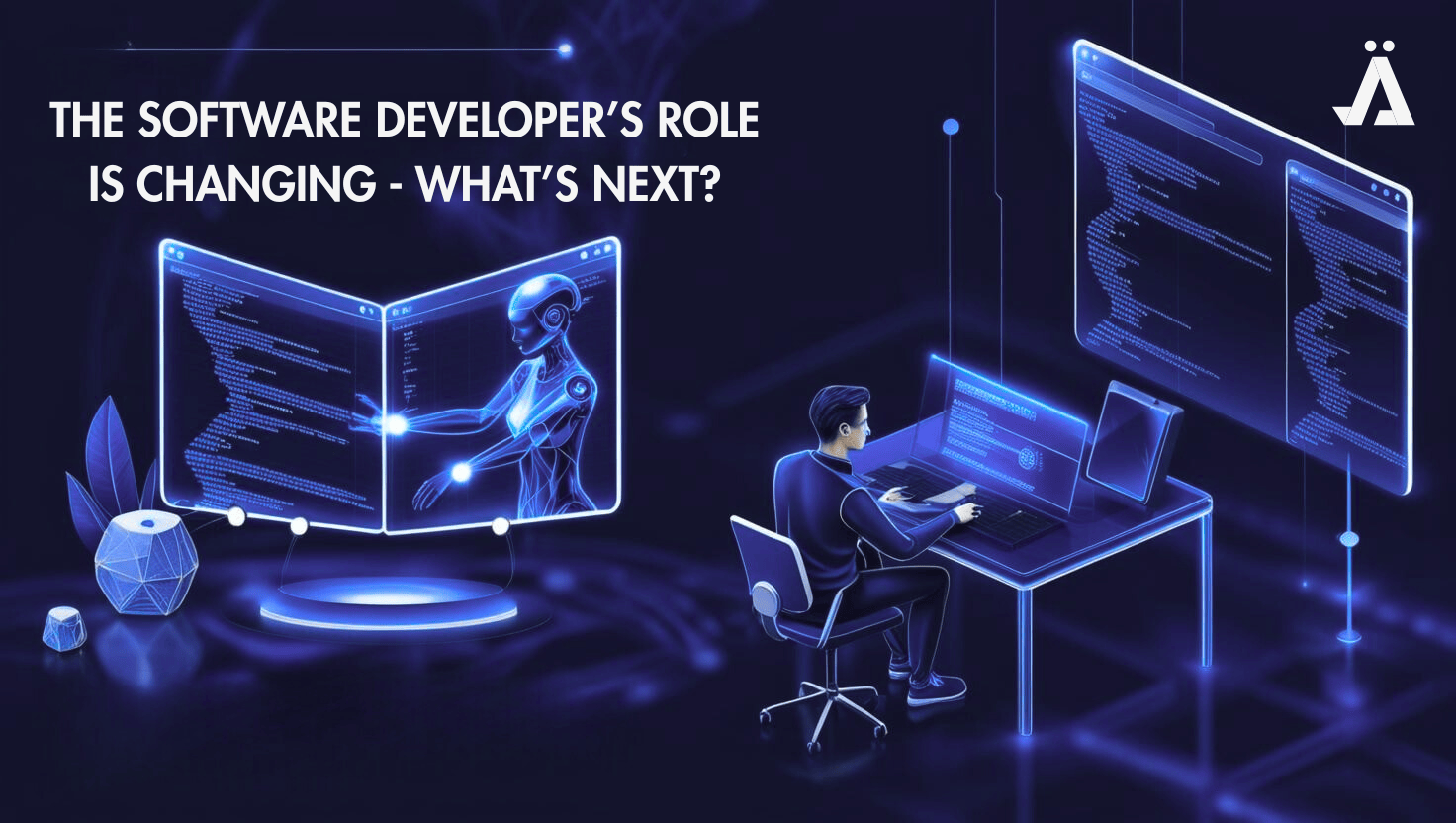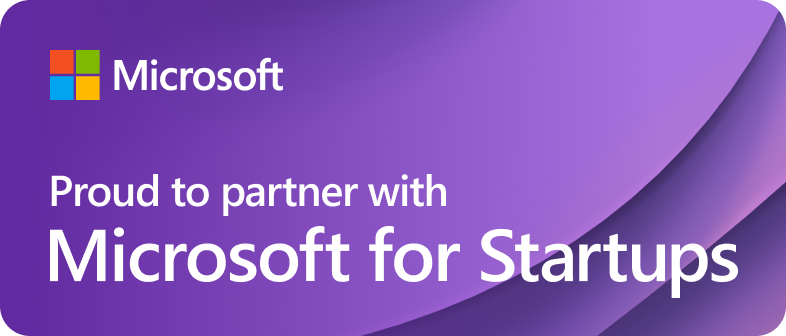Introduction
Jeff Bezos once remarked that during early electrification, firms hired a Chief Electricity Officer,
a role that vanished once electricity became ubiquitous. Today, software is experiencing its own
electrification moment, with AI becoming the underlying utility powering development. Just as
electrical engineers shifted focus from generators to grid-scale optimization, software engineers
must evolve beyond manual coding to orchestrating AI-driven workflows.
Key Factors Changing the Software Developer’s Role
1. LLMs Automating Routine Coding Tasks
Large language models (LLMs) like OpenAI’s GPT and GitHub Copilot are now embedded in
development toolchains, generating boilerplate code, creating tests, refactoring, and even
conducting initial reviews. Microsoft reports that depending on language and project type, AI
now produces between 20 % and 30 % of new code, while Google indicates over 30 % of its
newly written code is AI-generated. In enterprise studies, developers accept roughly 30% of
Copilot’s suggestions, with 90% acknowledging increased productivity. These tools free human
engineers to focus on complex, high-impact problems, but they also diminish the demand for
developers whose primary value lies in basic syntax and repetitive tasks.
2. Remote Work and Offshoring
The pandemic’s normalization of remote work erased many geographic barriers, enabling
companies to tap global talent pools more easily. AI further amplifies this trend: business insider
reports that AI tools can “supercharge offshoring” by upskilling lower-cost workers and
enhancing their productivity in complex roles like software development. As a result,
commodity-level development work is increasingly outsourced or automated, intensifying
competition for traditional coding positions.
3. Industry-Specific Expertise
As AI handles foundational coding, the premium shifts to engineers who understand domain
nuances, healthcare regulations, financial compliance, or energy-grid constraints. Industry-savvy
developers can contextualize technical choices within business realities, translating stakeholder
needs into strategic priorities. In sectors with stringent standards, human oversight and deep
vertical knowledge remain indispensable.
4. The Rise of Prompt Engineering
Prompt engineering is the art and science of designing inputs for large language models (LLMs)
to yield optimal outputs, treating prompts as a domain-specific language within host applications.
The Business Insider reported skyrocketing demand for prompt engineers, hailing them as the
“hottest AI job of 2023,” Some argue prompt engineering is essentially macro-writing and will be
subsumed by evolving AI that auto-refines prompts, doomed to disappear once LLMs
self-optimize. Others counter that deep system knowledge and ethical “red-teaming” to prevent
adversarial exploits will keep prompt engineers indispensable for the foreseeable future.
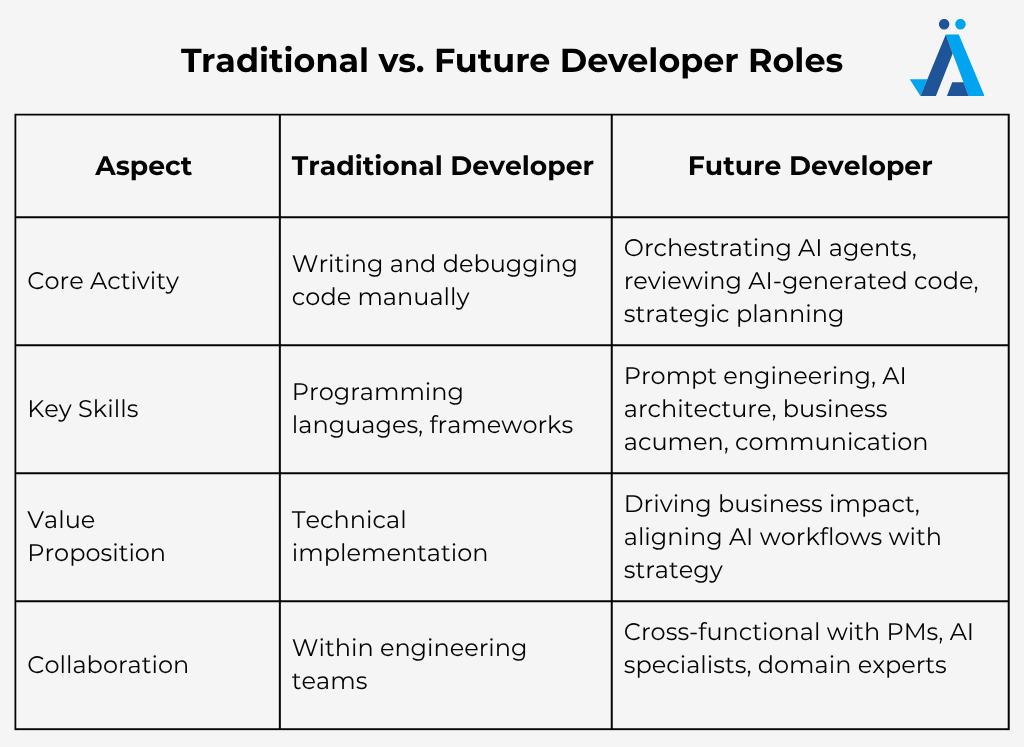
New Skill Requirements for Software Engineers
1. Business Acumen and Product Thinking
Coding alone no longer suffices; developers must grasp market trends, ROI calculations, and
strategic objectives. Engineers who speak the language of C-suite executives and translate
technical trade-offs into business outcomes will command leadership roles.
2. Emotional Intelligence and Communication
AI can’t negotiate stakeholder expectations, mediate team conflicts, or elicit nuanced
requirements, human soft skills remain critical. High-EQ engineers who foster collaboration,
mentor juniors, and build consensus will be essential in hybrid AI-human teams.
3. Continuous, Multi-disciplinary Learning
The half-life of programming languages and frameworks is shrinking. Engineers must adopt a
mindset of perpetual learning, mastering new AI tools, understanding adjacent fields like data
ethics or DevOps, and staying current on industry regulations.
Career Strategies for Developers
1. Upskilling and Reskilling
Invest in AI literacy, learn prompt engineering frameworks, experiment with open-source LLMs,
and study AI ethics. Acquire business skills through courses or mentorships.
2. Focus on High-Value Tasks
Shift from boilerplate coding to system architecture, API design, and strategic planning. Become
the bridge between AI capabilities and business objectives.
3. Niche Expertise and Leadership Roles
Cultivate domain specialization (e.g., fintech compliance, medical device software) where deep
knowledge underpins critical decisions. Focus on leadership, stakeholder management, and clear
communication to complement technical capabilities.
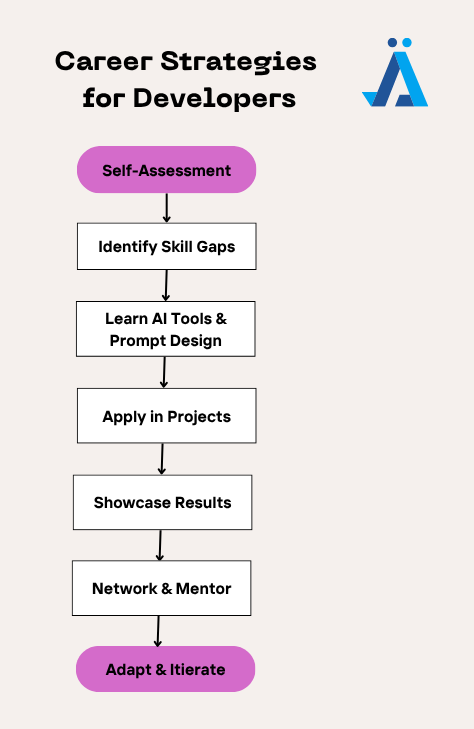
AI- Augmented Development Workflow

This cycle illustrates how prompt engineers interface between product needs and AI models,
orchestrating a loop of generation, validation, and deployment.
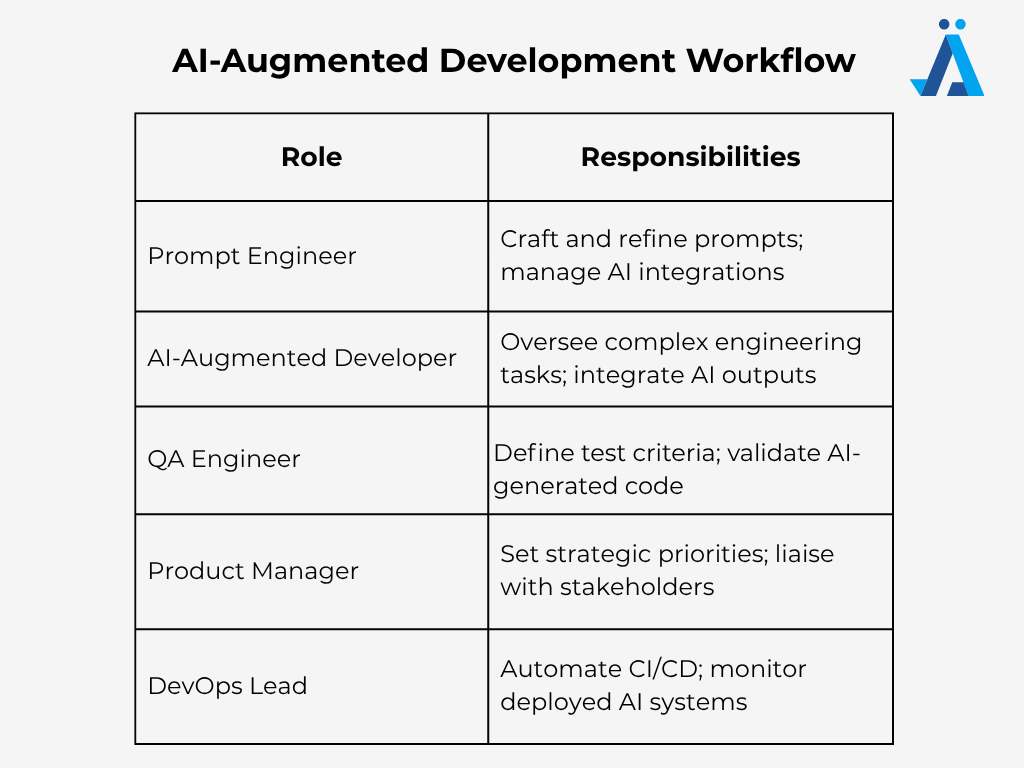
The Automation Dilemma
While AI makes automating individual tasks easier than ever, it seldom replaces entire roles
outright. Instead, it transforms job scopes by offloading routine, repeatable work such as
generating boilerplate code, formatting, and standard test case creation to intelligent systems.
However, human developers remain essential for oversight, ethical governance, and handling
ambiguous or novel challenges that AI cannot yet address. This tension between the efficiency
gains of automation and the enduring need for human judgment constitutes the automation
dilemma: organizations must balance investing in AI-driven productivity with upskilling their
workforce to tackle the complex, creative, and collaborative aspects of software development that
machines cannot fully replicate.
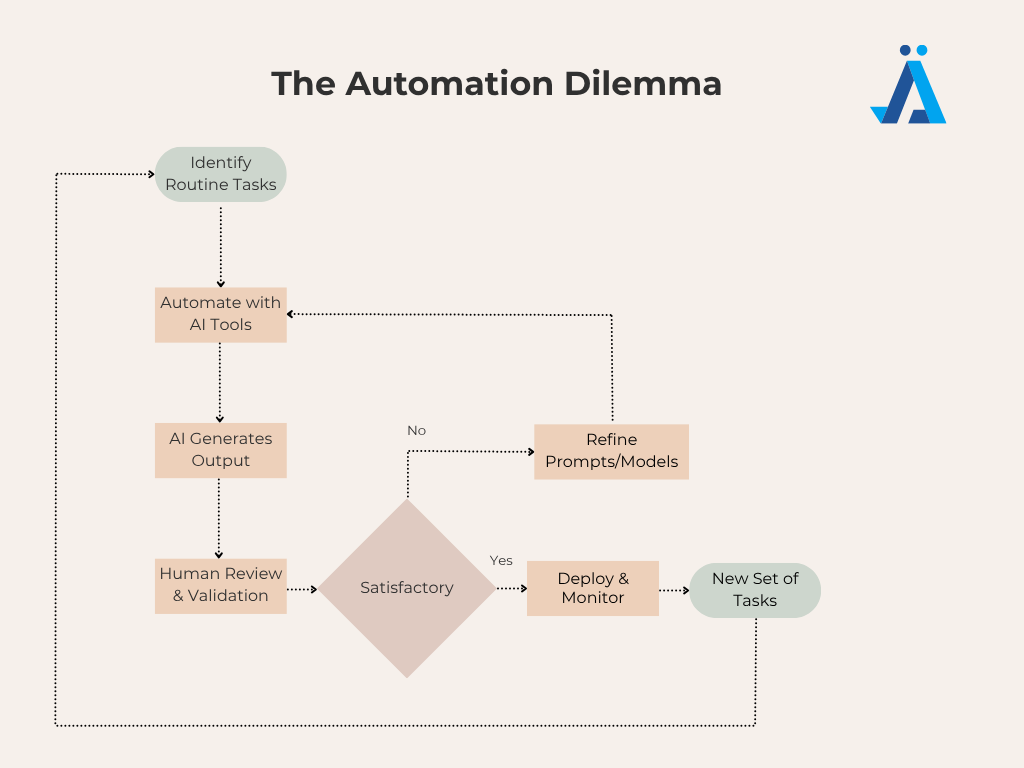
Conclusion
The software developer’s role is at an inflection point. As AI becomes the new “electricity”
powering software development, traditional coding tasks are automated, and value shifts toward
strategic orchestration, business impact, and domain expertise. Developers who embrace prompt
engineering, deepen their business insight, and strengthen soft skills will not only remain
relevant, they will lead the next wave of innovation. The question isn’t whether to adapt.
It’s how fast and how far you evolve with AI.
